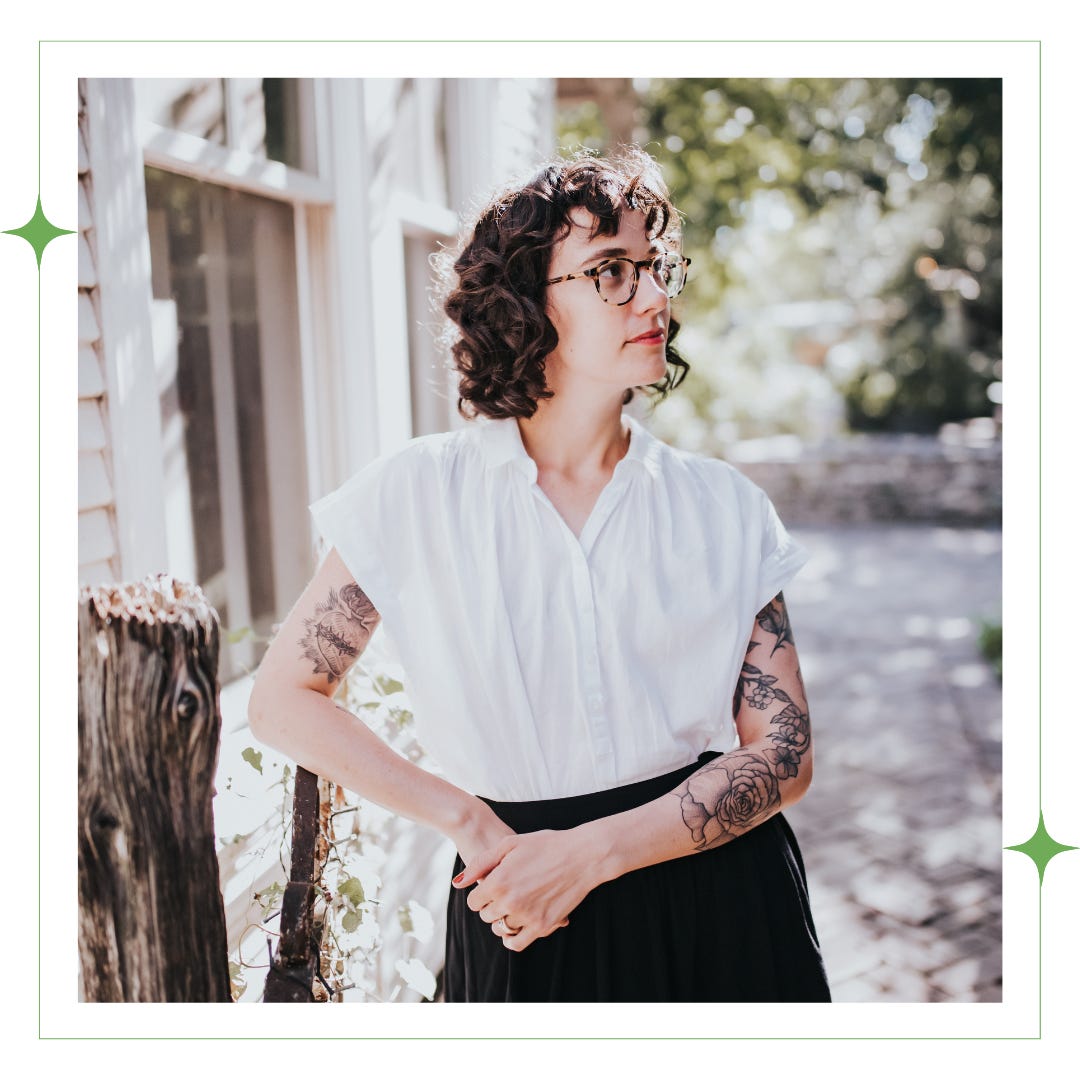On Rejection: Brittany Muller
Standing at the intersection of Christianity and tarot
Welcome to another On Rejection interview! Brittany Muller is the author of The Contemplative Tarot and a genuinely lovely and sweet person. I’m really excited for y’all to read about her experiences getting her book published.
If you’re just discovering Collected Rejections, welcome! In this world, writing is still fun, rejection is not a bad word, and we’re all here to grow as writers. If you’re into that, subscribe to this newsletter here:
Hi Brittany! Tell us about a time you experienced rejection.
My first book, The Contemplative Tarot, was published last fall. Essentially, it teaches Christians about how to use tarot in a prayerful, rather than divinatory, way. The marriage of those two ideas — tarot and Christianity — seems so counterintuitive as to be laughable, and because of that, the book faced quite a bit of rejection on its road to publication.
In some ways I’ve been very lucky in my publishing experience. I had been talking about tarot and Christianity on instagram for a few years and had privately toyed with the idea of writing a book about it when I was approached by an editor who asked me if I had ever thought about writing a book about it! She helped me find an agent who in turn helped me polish my book proposal and sell the book. The initial opportunity really did fall into my lap, and I’m so grateful for that.
I knew that there would be rejection involved in trying to sell the book idea to a publisher — of course not every publisher my agent approached would be interested in this weird little book! — but I was surprised by the particular kind of rejection it received. In the process of selling the book idea, there were multiple instances of an editor being very interested in the book but ultimately having to reject it because they couldn’t get the marketing and/or sales teams on board. I was told over and over again that the book was unmarketable — Christians wouldn’t read a book about tarot and tarot enthusiasts wouldn’t read a book about Christianity, and so while the idea was interesting, publishers were convinced it wouldn’t sell. That sort of rejection — a rejection based on un-marketability — was difficult for me to swallow! I had to work through my misgivings about my ideas and wrestle with the question of what if my book is too weird for other people?
How did you get over it?
The book did find a lovely home at St Martin’s Essentials. Having an editor who believed in my work and a marketing team who wasn’t scared of it helped a lot. Also, while the book isn’t a NYT bestseller, its sales have exceeded my expectations! People have read it!
What’s really helped me more than anything else, though, is the deeply personal emails I’ve gotten from people who have read and loved the book. The Contemplative Tarot definitely upset some folks: I got angry reviews from Christians who thought I was playing around with demonic forces and I got angry reviews from witches and neo-pagans who felt that I was appropriating their culture. But I also know that the book has found its way to the people who really wanted to read it, because those people got in touch with me to tell me how much the book meant to them. That was so affirming for me, and I save all those emails in a special little folder in my inbox.
If you could go back and tell yourself anything right before that experience, what would you say?
As a writer whose work often bridges religion and the esoteric, and as a person who wants everyone to like me all the time, I worry sometimes about my ideas not being palatable.
This sounds so trite, but I would remind myself that it’s okay for my work to not appeal to everyone, that my work only needs to appeal to me, and that marketability is the worst marker of good art. It’s a thing I knew intellectually, but I hadn’t yet internalized it.
Has seeing your book published changed how you feel about rejection?
Absolutely.
I deeply enjoyed writing The Contemplative Tarot. It was a thrilling experience and it made me want to write more books. What I did not deeply enjoy was the part of the publishing process where I had to convince other people that my book was worth reading. I did a lot of podcast interviews and stuff for the book, and most everyone I talked to was lovely, but I very much felt like a person could choose to read the book or not read it, and the book should speak for itself. It felt redundant to write a book and then talk about it.
That process did help me, though, get over this fear I have about being rejected because my interests are too outside the norm. With The Contemplative Tarot, I wrote something that I was proud of. It felt so true to my vision of what I wanted the book to be that by the time it was published, I didn’t care whether or not anyone read it. That creative purity is what I want to follow in all of my writing — to be so proud of what I write that it doesn’t matter if everyone else in the world rejects it.
What are you working on now?
Writing-wise, I’m doing very little right now. Honestly, I’m hardly writing at all, and I’m surprisingly okay with that! I have some ideas I’m interested in, and I’ve been reading as much as I can and collecting quotes and things like a little magpie. I'm occasionally sharing things on my Substack but that's my only public-facing work right now.
Creativity-wise, I’m doing a lot right now. I had a baby just a few weeks after The Contemplative Tarot was published last fall, and I’ve been busy mothering her and my other two kids. I find motherhood to be really fruitful for my creativity, because my kids are always changing in a way that requires constant shifts in mindset for me. It’s a different kind of creative work from writing, but interesting and inspiring all the same!






Love this image --
“I’ve been reading as much as I can and collecting quotes and things like a little magpie.”
Yes!!
And find this thought so refreshing & helpful --
“I find motherhood to be really fruitful for my creativity, because my kids are always changing in a way that requires constant shifts in mindset for me. It’s a different kind of creative work from writing, but interesting and inspiring all the same!”
Thank you to both of you!